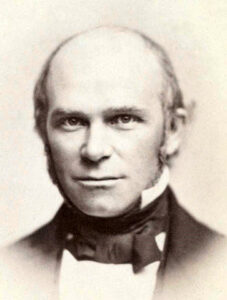Unitarian Minister Theodore Parker, a prominent abolitionist, delivers his “The Function And Place Of Conscience, In Relation To The Laws Of Men” sermon to his congregation, at the Melodeon, in Boston Massachusetts:
I may take the juror’s oath to give a verdict according to the law and the testimony. The law is plain, let us suppose and the testimony conclusive. … If I have extinguished my manhood by my juror’s oath, then I shall do my official business and find Greatheart [a hypothetical self-emancipated slave] guilty, and I shall seem to be a true man; but if I value my manhood, I shall answer after my natural duty to love a man and not hate him, to do him justice, not injustice, to allow him the natural rights he has not alienated, and shall say, “Not guilty.”
[added 2/5/2022]
Subsequent Events:
Authority:
Article I, of Amendment
ccc-2point0.com/constitution-for-the-united-states
References:
Howard Zinn, “Law and Justice,” The Zinn Reader: Writings on Disobedience and Democracy, (New York: Seven Stories Press, 1997), 367, 397.
The Project Gutenberg eBook of Speeches, Addresses, and Occasional Sermons (Vol. 3 of 3) by Theodore Parker.
www.gutenberg.org/files/34688/34688-h/34688-


